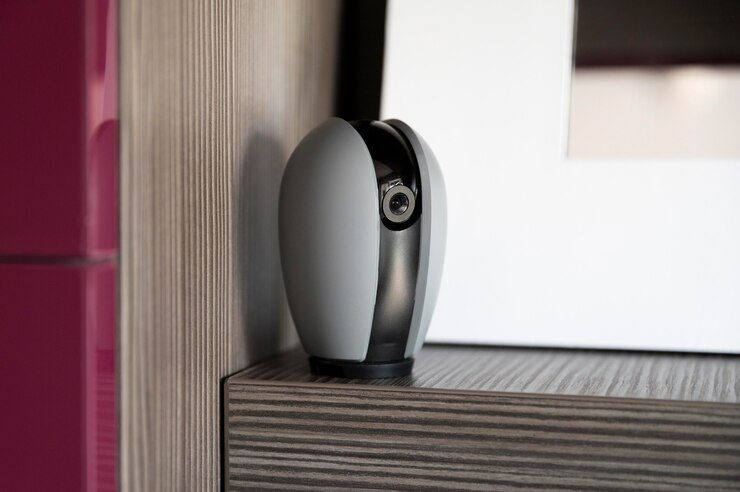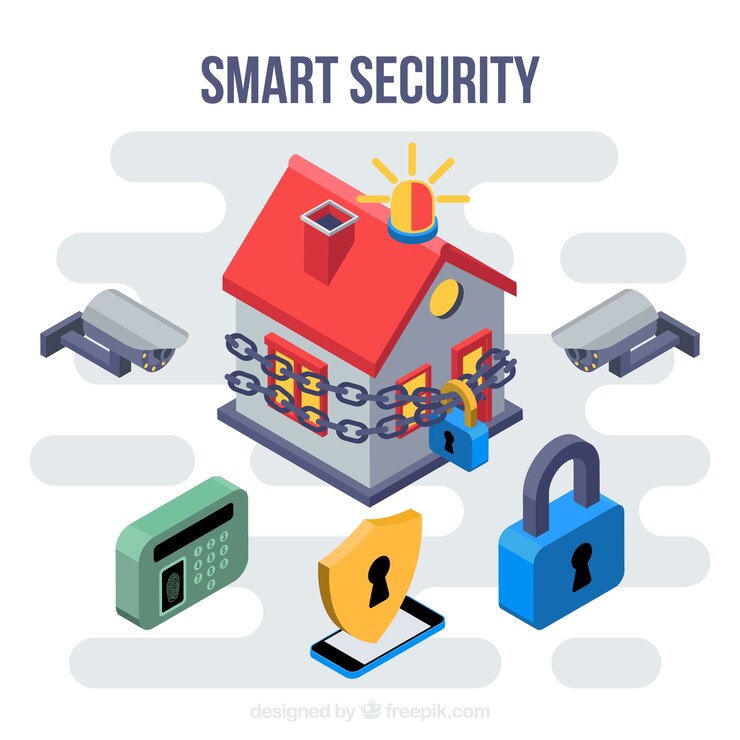Yes, CCTV better than alarm as it provides visual evidence and real-time monitoring to prevent and address security threats effectively. With its ability to record footage and offer live surveillance, CCTV offers a more comprehensive approach to security compared to alarms.
CCTV systems have become increasingly popular for both residential and commercial properties due to their ability to provide visual evidence of any security incidents and deter potential intruders. Unlike alarms, which only notify of potential threats, CCTV allows for real-time monitoring and recording of any suspicious activity, offering a proactive security solution.
We will explore the benefits of CCTV over alarms and how it can enhance the security of your property.

Understanding The Purpose Of CCTV And Alarm Systems
Understanding the Purpose of CCTV and Alarm Systems
Differentiating Between Surveillance And Alarm Technologies
CCTV systems and alarm systems are both critical components of comprehensive security measures. While CCTV offers visual surveillance, alarms are designed to detect and alert to potential security breaches.
Highlighting The Primary Functions And Benefits
CCTV systems are primarily oriented towards monitoring and recording activities within a specific area, providing valuable evidence in the event of a security incident. These systems deter criminal activities, enhance overall security, and offer peace of mind to property owners.
Alarm systems, on the other hand, are designed to detect unauthorized entry, triggering audible or silent alarms to notify both the property owner and relevant authorities. They act as a first line of defense, deterring intruders and providing an immediate response to potential threats.
Comparing The Effectiveness Of CCTV And Alarm Systems
When it comes to safeguarding your property and ensuring safety, choosing the right security system is crucial. In today’s digital age, the debate between the effectiveness of CCTV and alarm systems continues to be a hot topic. Let’s delve into the nuances of these two security measures and analyze which one offers better protection in different scenarios.
Analyzing The Deterrence And Prevention Aspects
CCTV systems serve as a visible deterrent, with cameras alerting potential intruders that their actions are being monitored and recorded. The presence of CCTV can effectively discourage criminal activities and prevent trespassing. On the other hand, alarms primarily act as a reactive measure, triggering a response only after an intrusion is detected. While alarms can sound off and alert nearby individuals, they may not have the same level of prevention as a visible CCTV system.
Evaluating The Response And Alert Mechanisms
When an alarm is triggered, it immediately activates a loud siren and can notify the authorities and the homeowner of a potential break-in. This can prompt a swift response from security personnel, law enforcement, or the property owner. Conversely, CCTV systems allow for real-time monitoring, enabling authorities to visually assess the situation and take immediate action. This can provide valuable information about the nature of the threat and help expedite the response process.
Weighing The Cost-effectiveness And Maintenance Factors
In terms of cost, alarms generally require lower initial investment and ongoing maintenance, making them a more budget-friendly choice for many homeowners. CCTV systems, while potentially more costly upfront, offer long-term benefits by providing continuous surveillance and evidence gathering capabilities. Additionally, CCTV systems may require occasional maintenance and camera adjustments, but the advancements in technology have made them more user-friendly and efficient in the long run.
Addressing The Limitations And Vulnerabilities Of CCTV And Alarm Systems
Addressing the Limitations and Vulnerabilities of CCTV and Alarm Systems
Highlighting The Blind Spots And False Alarms In CCTV Systems
When relying solely on Closed-Circuit Television (CCTV) systems, it’s crucial to acknowledge their blind spots and susceptibility to false alarms. These blind spots often occur due to poor positioning or limited camera coverage, allowing potential intruders to go undetected.
In addition, false alarms can lead to desensitization among security personnel or authorities, potentially resulting in delayed responses to real threats.
Discussing Potential Vulnerabilities And Bypass Techniques For Alarm Systems
Alarm systems, while effective, are not immune to vulnerabilities and bypass techniques exploited by determined intruders. These potential weaknesses range from physical manipulation of alarm components to sophisticated hacking methods.
It’s essential for security providers and homeowners to stay informed about these potential vulnerabilities to reinforce the robustness of their alarm systems.
Integrating CCTV And Alarm Systems For Comprehensive Security
Integrating CCTV and Alarm Systems for Comprehensive Security provides added layers of protection and peace of mind for homeowners and business owners alike. By combining the strengths of surveillance cameras and alarm systems, a more holistic approach to security can be achieved, deterring potential intruders and enabling swift responses to any security breaches.
Exploring The Combined Efficiency In Deterring Intruders
When it comes to deterring intruders, the combination of CCTV and alarm systems creates a powerful deterrent effect. By having surveillance cameras prominently displayed alongside an effective alarm system, potential intruders are far less likely to attempt a break-in. CCTV provides a visual warning to would-be trespassers, while alarm systems signal that any attempt at unauthorized access will have immediate consequences. This dual threat significantly reduces the likelihood of security breaches, providing a robust first line of defense for any property.
Identifying The Advantages Of Integrated Monitoring And Response Protocols
Moreover, an integrated CCTV and alarm system allows for comprehensive monitoring and rapid response in the event of a security breach. With real-time monitoring capabilities, suspicious activities can be identified and addressed immediately, minimizing the risk of theft, vandalism, or other unlawful activities. Additionally, the integration of these systems enables prompt alerts to be sent to security personnel or authorities, facilitating a swift and coordinated response to potential threats. This not only enhances the security level but also provides peace of mind to property owners, knowing that their assets and premises are under constant surveillance and protection.
Maximizing Home Protection: Strategic Implementation And Best Practices

When it comes to safeguarding your home, strategic implementation and best practices are crucial. One of the primary decisions homeowners face is choosing between CCTV and alarm systems to enhance home security. Let’s explore the effective placement and installation of these systems, along with proactive security measures and community integration to bolster overall protection.
Outlining Effective Placement And Installation Strategies For CCTV And Alarm Systems
Effective placement and proper installation of CCTV and alarm systems are vital components of home security. Installing CCTVs at strategic locations such as entry points, garage areas, and perimeter boundaries ensures maximum coverage. Additionally, utilizing high-resolution cameras and positioning them at optimal heights can deter intruders and provide clear footage for surveillance.
When it comes to alarm systems, strategically positioning sensors at vulnerable entry points like doors and windows is crucial. Integrating motion sensors in key areas within the home also adds another layer of security. Moreover, ensuring professional installation and proper calibration of these systems is essential for their optimal functionality.
Discussing Proactive Security Measures And Community Integration To Enhance Overall Protection
Beyond the installation of CCTV and alarm systems, proactive security measures play a pivotal role in bolstering home protection. Implementing proper lighting around the property, utilizing smart locks and reinforcing perimeter fencing are essential steps to discourage potential intruders.
Community integration can further enhance overall protection. Establishing neighborhood watch programs and fostering communication among residents can create a tight-knit community focused on maintaining vigilance and security. Additionally, collaborating with local law enforcement for crime prevention initiatives can bolster the home’s defense against potential threats.
Frequently Asked Questions On Is CCTV Better Than Alarm?
Is CCTV Better For Home Security Than An Alarm System?
CCTV provides visual evidence and deters intruders, while alarms alert authorities and neighbors. Combining both provides comprehensive protection.
How Does A CCTV System Enhance Home Security?
CCTV systems offer real-time monitoring, recording evidence, and remote access, increasing home security awareness, deterring criminals, and providing peace of mind.
Are Alarm Systems Effective In Deterring Burglars?
Alarm systems act as a strong deterrent, alerting homeowners, neighbors, and authorities of potential break-ins, reducing the likelihood of successful burglaries.
Can CCTV Surveillance Help In Preventing Home Break-ins?
Yes, CCTV surveillance helps prevent break-ins by providing visible security measures, deterring criminals, and providing valuable evidence for investigations.
Conclusion
In sum, both CCTV and alarm systems offer valuable security benefits. Depending on individual needs, a combination of both may provide the best results. Ultimately, it comes down to personal preferences and specific security requirements. Be sure to carefully consider all options before making a decision.
